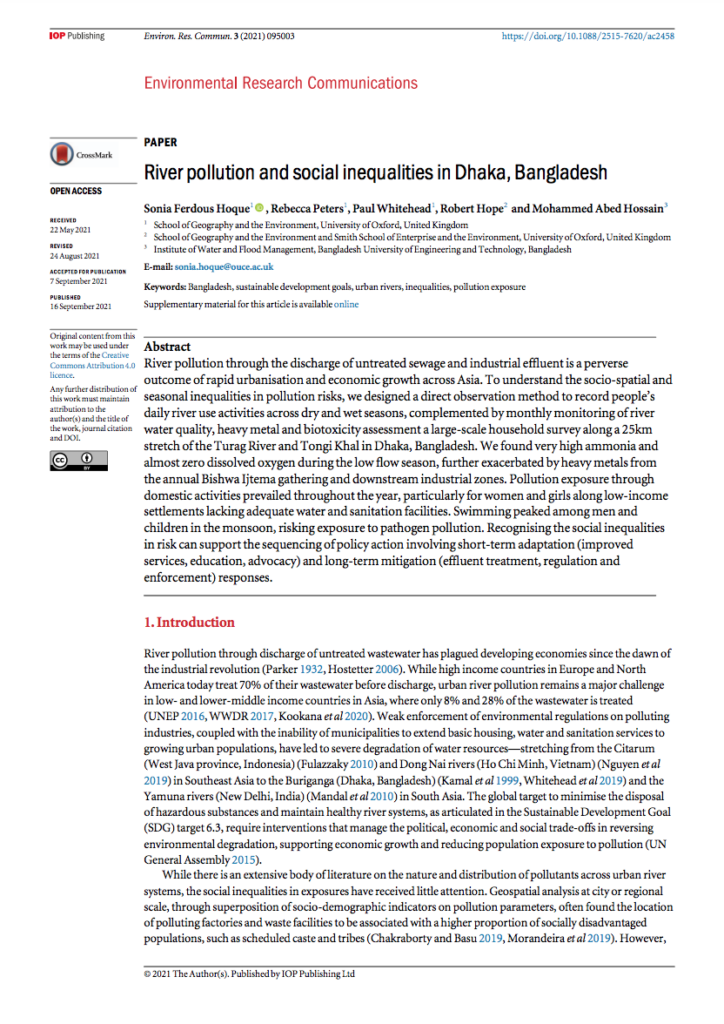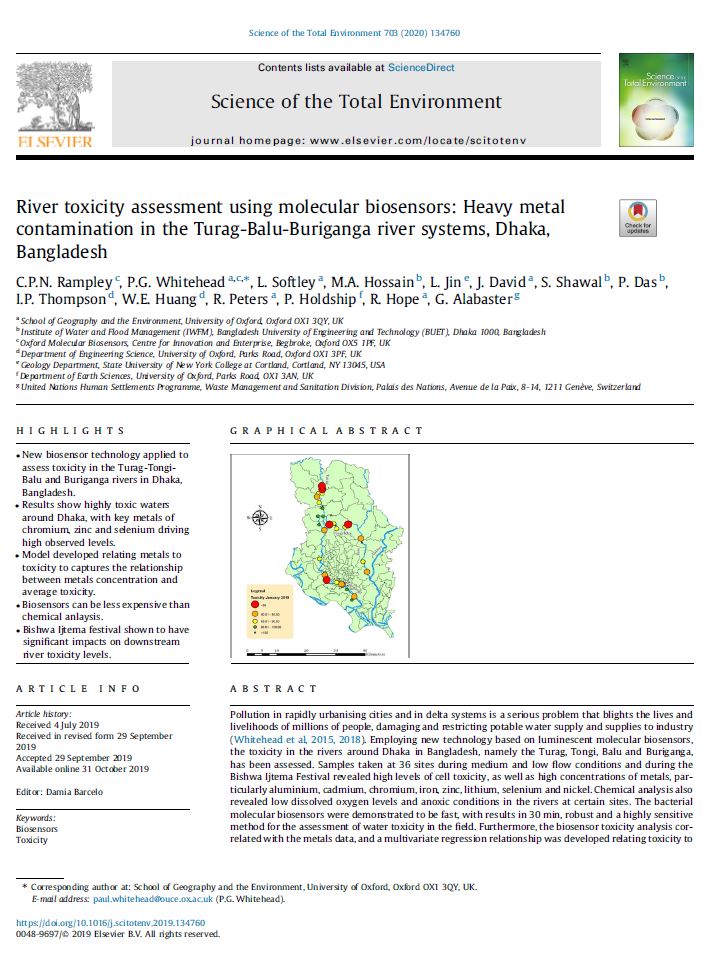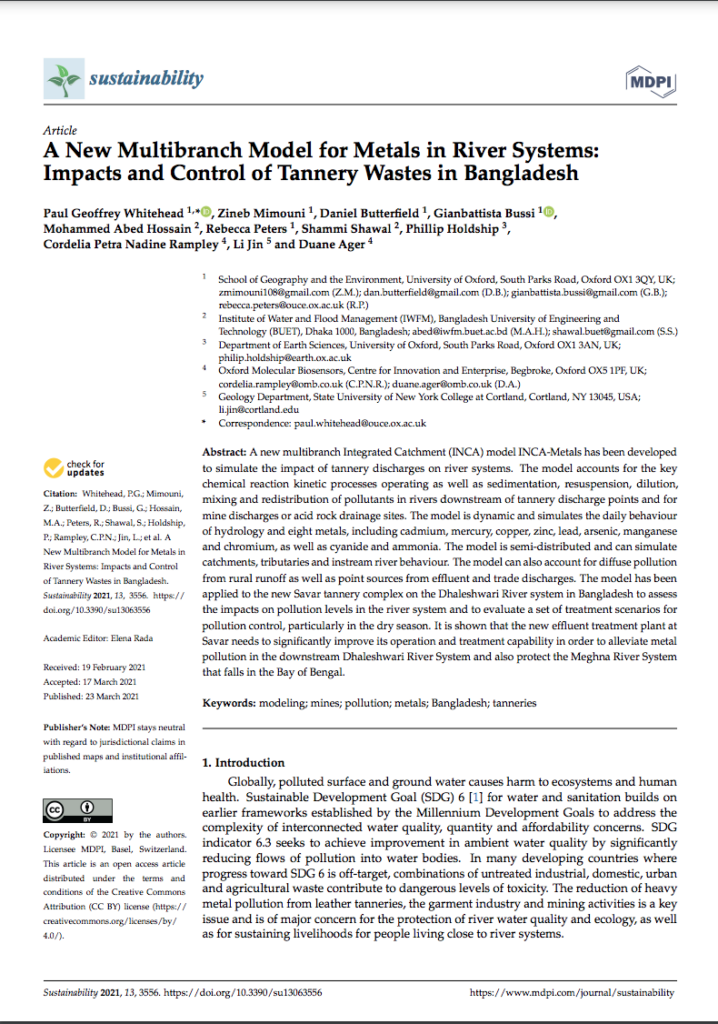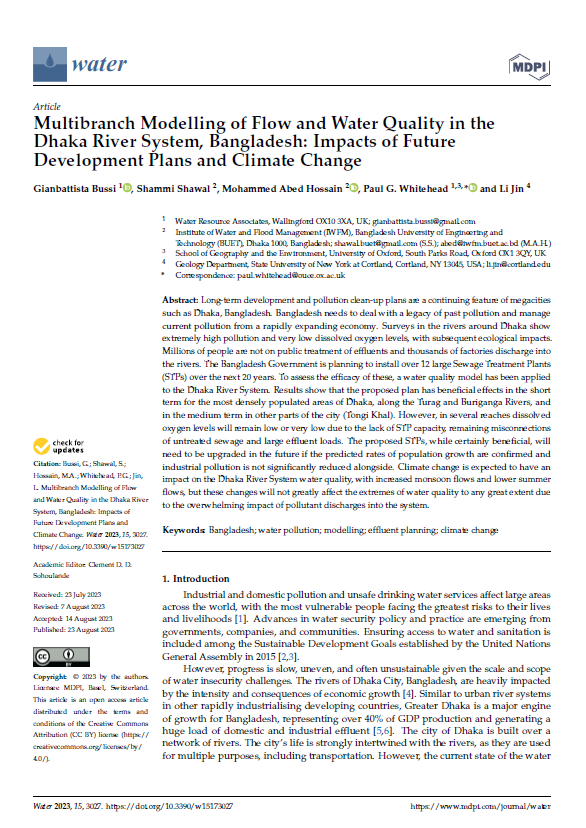
Improving water security for the poor
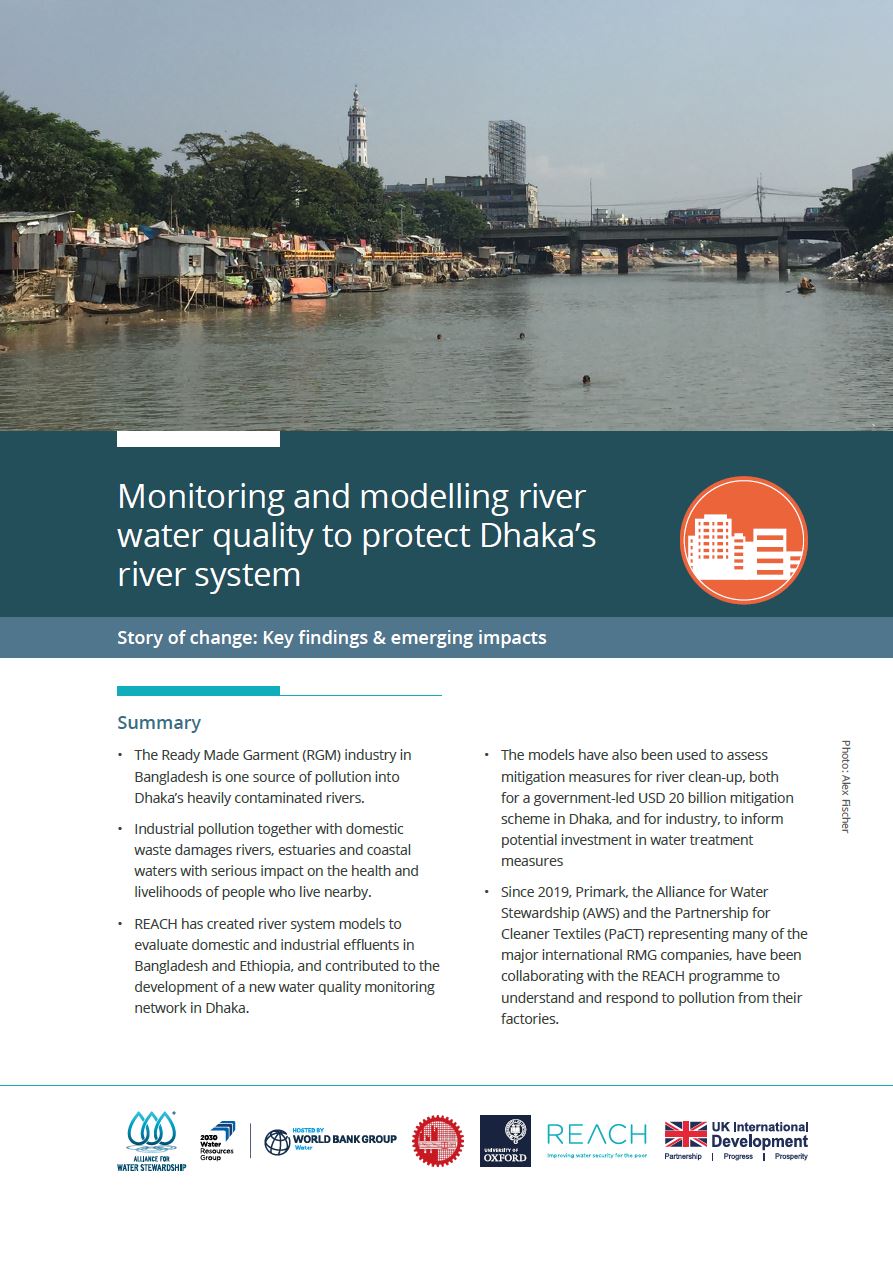
Monitoring and modelling river water quality to protect Dhaka’s river system
River water quality is a topic of rapidly growing concern for sustainable and equitable development in the city of Dhaka, Bangladesh. Over the last two decades, water quality has dramatically decreased due to major increases in industrial and domestic effluent and waste being allowed to enter rivers without adequate treatment. REACH research has highlighted significant social inequalities in pollution exposure, with low-income residents and workers along the riverbanks using the contaminated waters daily for their domestic, productive and recreational uses.
Drawing on a 5-year system-wide river water quality monitoring programme, the REACH
Programme has established an advanced water quality modelling system that can allow decisionmakers to assess the potential impacts of current activities and future growth and mitigation strategies on river health. REACH’s data and models are providing the means to optimise and prioritise planned investments, thus supporting policy and practice for industry, government and donors.

